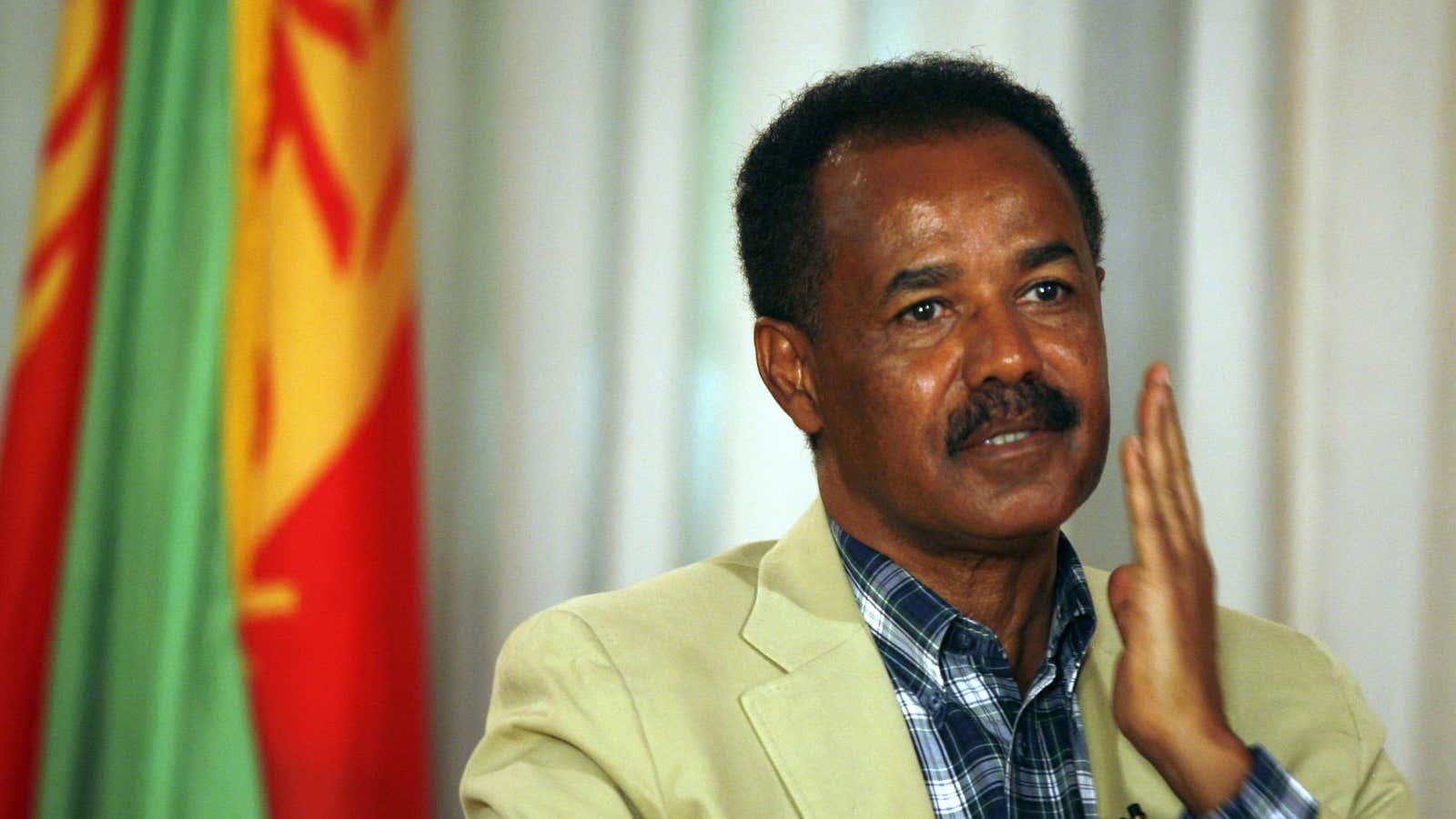At least 28 people were reportedly killed and 100 others wounded after security forces opened fire on students demonstrating in Eritrea’s capital city, Asmara.
The protests took place on Tuesday (Nov. 1) after the government tried to take control of a Muslim religious school and arrest Hajji Musa, a leading member, according to Al Jazeera English. When police faced resistance from the students at the Diaa Islamic School, they started beating them, after which demonstrations spilled into the streets. Unverified videos posted on social media showed security officers dispersing protesters. Another one showed Musa giving a speech and rejecting some of the government’s dictates including a ban on the headscarf.
The opposition group Red Sea Afar Democratic Organization said in a Facebook post (in Arabic) the protests was an “uprising” and a “revolt” and signified the people’s “categorical rejection of the regime.” The United States embassy in Asmara also issued a statement advising its citizens to avoid the downtown area where protests were happening and the police presence remained “significant.”
However, the Eritrean government denied the deaths, saying the demonstration was broken up without any casualties. Information minister Yemane Meskel also wrote on Twitter saying the figures documented in the media were “false reports.”
The protests have raised concerns across Eritrea and the Horn of Africa region about what this means for Africa’s so-called hermit kingdom. As an isolated nation with a repressive regime, Eritrea has been ruled by Isaias Afwerki since it gained independence from Ethiopia in 1991. The country’s human rights track record remains abysmal, as it regularly subjects citizens to arbitrary arrest and harsh treatment, according to Human Rights Watch.
The one-party state also promotes a national conscription service that drafts citizens for an indefinite period of time, forcing them into “slave labor” conditions. And because of the repression, many Eritreans flee to neighboring countries or to Europe, making them one of the top refugee contributing nations in the world.
The current protests, however, threaten to reverse some of the recent developments that many thought was bringing the Horn of Africa nation in from the cold. Following years of lobbying, in July, UNESCO listed the capital Asmara as a World Heritage Site due to its Italian-era modernist architecture. The government has also allowed and even promoted competitive cycling in the country, with many young people looking to it as a gateway to the world.
